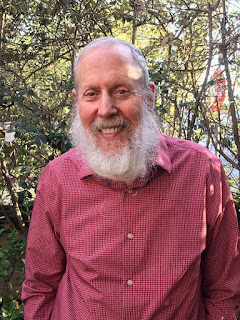May 23, 2024
Lawsuit Alleges Religious Coercion Through Meditation in Chicago Public Schools
May 16, 2024
The other effects of meditation
May 14, 2024
Not sure what coercive control actually looks like? An expert breaks it down.
May 13, 2024
Lawsuit alleges religious coercion through meditation in Chicago Public Schools
May 11, 2024
CultNEWS101 Articles: 5/9/2024 (Attachment, Chiropractic, Jehovah's Witnesses, Japan, Dahnworld)
"A new study published in the Journal of Personality examined the link between attachment profiles, singlehood, and psychological well-being.
Despite the universal desire for romantic companionship, a growing number of people are choosing to live alone, with a significant increase in solo living from 7.6% in 1967 to 14.4% in 2020 in the United States. Further, around 35% of U.S. adults are not in a romantic relationship.
In their new study, Christopher A. Pepping and his colleagues examined why some people remain single through the lens of attachment theory. While attachment theory is often referred to in explaining relationship dynamics, it has rarely been applied to singlehood."
JSTOR: The Metaphysical Story of Chiropractic
Chiropractic medicine began as a practice built on an approach to the human condition that was distinctly opposed to Christianity.
"If you've considered seeing a chiropractor for a back problem, you may not have thought much about how the treatment could affect your spiritual life. But, as religious studies scholar Candy Gunther Brown writes, chiropractic began as a distinct approach to the human condition that was explicitly opposed to mainstream Christian theology
Brown writes that, before he became the founder of chiropractic, Daniel David Palmer was a Spiritualist and practitioner of animal magnetism. Palmer subscribed to eclectic spiritual ideas based on the unity of God and nature and the idea that humans can restore themselves to a state of harmony without depending on divine intervention.
Palmer claimed to have received communication from a deceased physician who taught him the principles of chiropractic—a term he invented in 1896, combining the Greek words cheir and praktos to mean "done by hand."
Palmer considered introducing Chiropractic as a religion in its own right but ultimately settled on describing it as an amalgamation of Christian Science and modern medicine. He wrote that it was based on adjusting the body to permit the free flow of "Innate Intelligence," or just "Innate," which he explained as "a segment of that Intelligence which fills the universe" (i.e. God) found in each individual.
"Palmer insisted that chiropractic could not be practiced effectively apart from a philosophy which he thought captured the essence of the world's religious and medical systems," Brown writes.
In 1963, the American Medical Association formed a Committee on Quackery with the mission "to contain and eliminate chiropractic."
Palmer's son, Bartlett Joshua Palmer, continued his father's work, leading the Palmer School of Chiropractic in Iowa, which trained about 75 percent of all chiropractors for 50 years. The younger Palmer was more forthright than the elder in his opposition to Christianity, writing that "no Chiropractor would pray on his knees in supplication to some invisible power."
Nonetheless, Brown writes, many patients apparently found seeing a chiropractor compatible with their Christian faith. Often, chiropractors served rural, working-class people, who were frequently suspicious of allopathic medicine."
Japan Times: Japan finds 47 cases of abuse of 'second-generation followers'
"There were 47 child abuse cases apparently reflecting parents' religious beliefs in Japan between April 2022 and September 2023, a Children and Families Agency survey showed Friday.
The suspected abuse cases were found by child consultation centers across the country, with victims temporarily taken into protective custody in 19 of the total cases, while some of the victims, often called "second-generation followers," sought support to become more self-reliant or advance to the next level of education.
The agency plans to consider necessary measures based on the results of the survey, which also covered medical institutions with critical care centers and municipal governments as well as elementary, and junior and senior high schools.
Mitsubishi UFJ Research and Consulting conducted the survey on behalf of the agency using subsidies.
Of 232 child consultation centers across the country, 229 gave answers. Among the respondents, 37 facilities, or 16.2%, said that they detected child abuse cases believed to have been caused mainly by parents' religious beliefs.
Of the 47 detected abuse cases, those in which parents blocked their children's free decision-making by inciting fear through the use of words and images accounted for the largest share. In other cases, parents forced their children to declare in front of others that they are following religions or compelled their children to engage in activities to spread the religions they believe in by intimidating them."
The Chosun: Religious cult links to HYBE spark online speculation
" ... Founded in South Korea in the 1980s, Dahnworld outwardly presents itself as a meditation group but has long faced allegations of being a cult. In the United States, it is known as Dahn Yoga. CNN, Forbes, and others reported allegations in 2010 that the founder and spiritual leader, Ilchi Lee (Lee Seung-Heun), had sexually preyed on young female disciples. In Korea, SBS's investigative program Unanswered Questions shed light on fraud allegations against the organization."
News, Education, Intervention, Recovery
Intervention101.com to help families and friends understand and effectively respond to the complexity of a loved one's cult involvement.
CultRecovery101.com assists group members and their families make the sometimes difficult transition from coercion to renewed individual choice.
CultNEWS101.com news, links, resources.
Cults101.org resources about cults, cultic groups, abusive relationships, movements, religions, political organizations and related topics.
Selection of articles for CultNEWS101 does not mean that Patrick Ryan or Joseph Kelly agree with the content. We provide information from many points of view in order to promote dialogue.
Please forward articles that you think we should add to cultintervention@gmail.com.
CultNEWS101 Articles: 5/10/2024 (Geelong Revival Centre, Clergy Sexual Abuse, Transcendental Meditation, Legal, Religious Freedom)
"Leadership changes loom at a shadowy, ultra-conservative Geelong church as former members hit out at the contradictory behaviour of its long-serving pastor.
A controversial Pentecostal Geelong church described by some as a "cult" is facing a forced leadership change, with its 93-year-old founder and long-term leader gravely ill, according to multiple sources."
RNS: Why faith-based groups are prone to sexual abuse and how they can get ahead of it
As Sexual Assault Awareness Month comes to a close, there are a few steps experts say every faith group can take to improve safeguarding protocols.
" .. With more victims coming forward and more research done on abuse within religious contexts, the evidence has shown that when sexual abuse happens in a place designated not only safe, but holy, it's a unique form of betrayal — and when the perpetrator is a clergy member or spiritual leader, the abuse can be seen as God-endorsed.
As the scope of this crisis has been revealed, houses of worship and religious institutions — from Southern Baptists to Orthodox Jews to American atheists — have looked to shore up their safeguarding protocols and protect their constituents against abuse.
But rather than scrambling to respond in the wake of a crisis, faith groups need to adopt policies tailored to their setting and connected to their mission, says Kathleen McChesney, who was the first executive director of the Office of Child Protection for the U.S. Conference of Catholic Bishops."
"A high school student recently obtained a judgment in the amount of $150,000 that was entered in her favor and against the Chicago school system, which forced her to participate in Hindu practices, amounting to idolatry in violation of her Christian beliefs.
The Board of Education of Chicago, the University of Chicago, and the David Lynch Foundation were sued by Mariyah Green, a former student at Bogan High School, for mandating student participation in Hindu rituals, despite conflicting religious beliefs. She was granted a $150,000 judgement on October 23 by the clerk of the United States District Court for the Northern District of Illinois.
Bogan students were required to participate in a program titled "Quiet Time," which consisted of two 15-minute periods each day dedicated to the practice of "transcendental meditation" (TM), which was popularized by Hindu guru Maharishi Mahesh Yogi and involves concepts used in Hinduism, such as mantras.
Green, a 2020 high school graduate, told LifeSiteNews in a phone interview that in addition to the 15-minute periods of "meditation" each day, the school sponsored a three-day class to teach students "the way that they want you to meditate."
During the 2018-2019 school year, Green attended the first day of this three-day lesson, which she described as "very uncomfortable." Students came into a "completely dark" classroom with "curtains closed [and] candles around the picture of [a] man," which had been placed on a table in front of them.
"I was actually scared for a moment, like, what is going on? Why are the lights off? Why do the candles light the man? Of course, the picture kind of threw me off because it wasn't [anything] that I had ever seen."
Additionally, Green and her peers were instructed to "repeat a mantra" that they were told to keep "to yourself." After the first day, Green told LifeSiteNews that she was able to opt out of future participation in the three-day lessons by avoiding going to the class, but not the 15-minute periods each day.
Aside from teachers casually asking when she would be returning to the class, she didn't receive backlash for opting out of the lessons. She described them as "nice people, but it was against my religion."
On the other hand, the "very mandatory" 15-minute slots designated for TM were linked to student grades, leaving Green feeling obligated to participate so she wouldn't lose the academic standards required for her to play basketball at the school. During these times, Green said she "didn't do it their way" and "didn't keep the mantra in my head," instead closing her eyes so it "looked like I was meditating" to receive the participation credit."
" ... Over the past few years, multiple lawsuits have been filed against DLF accusing the organization of being aware of TM's link to Hinduism and enforcing the practice of worshipping idols rather than allowing students to read or rest during the 15-minute 'quiet time."'"
LifeSite: Student reportedly forced into Hindu rituals at Chicago school granted class action status
"A former Chicago public school student alleges that her school coerced her into Transcendental Meditation and Hindu practices, including a ritual invoking pagan gods, as part of a program run by the David Lynch Foundation.
A petition for class action status by a former Chicago Public School student, Kaya Hudgins, who alleged that her school coerced her to participate in Transcendental Meditation (TM) and Hindu practices has been granted by a federal judge in a lawsuit against the Board of Education of the City of Chicago and the David Lynch Foundation. Attorneys at Mauck & Baker, representing Kaya Hudgins, received an order from the United States District Court for the Northern District of Illinois awarding class certification to Hudgins and her peers.
The class action lawsuit alleges that while minor students were attending certain Chicago Public Schools that chose to participate in the David Lynch Foundation "Quiet Time" program, they were required to participate in Transcendental Meditation that incorporated Hindu religious rituals, which Hudgins claims on behalf of the class is an egregious violation of their constitutional rights."
" ... Hudgins, by her own declaration, was made to take part in Quiet Time.
"A Chicago Public Schools teacher told me and my entire class to sign a consent form to participate in Quiet Time," Hudgins wrote. "My entire class and I signed the consent because we felt pressure to sign. Our teacher told us that we would get in trouble and be sent to the dean if we did not consent. The teacher also told us that not signing the consent would affect our academics. We also received the same kind of pressure to participate in the Quiet Time program on a regular basis."
Hudgins was 16 years old at the time.
"Additionally, I, like many of my classmates, signed a nondisclosure not to tell anyone, including our parents, about the program," added Hudgins. "My classmates and I were particularly warned by a David Lynch Foundation representative not to tell our parents if our parents were 'religious.'"
"Not only were these minor school children coerced by Chicago Public School teacher into signing a document they had no business signing," shared John Mauck, a partner at Mauck and Baker, 'They were duped into practicing Hindu rituals and Transcendental Meditation during class time and instructed to hide their mandated participation in them from their parents.'"
News, Education, Intervention, Recovery
Intervention101.com to help families and friends understand and effectively respond to the complexity of a loved one's cult involvement.
CultRecovery101.com assists group members and their families make the sometimes difficult transition from coercion to renewed individual choice.
CultNEWS101.com news, links, resources.
Cults101.org resources about cults, cultic groups, abusive relationships, movements, religions, political organizations and related topics.
Selection of articles for CultNEWS101 does not mean that Patrick Ryan or Joseph Kelly agree with the content. We provide information from many points of view in order to promote dialogue.
Please forward articles that you think we should add to cultintervention@gmail.com.
Traumatic Narcissism in Cult Leaders - Interview with Daniel Shaw
Cult Vault: Traumatic Narcissism in Cult Leaders - Interview with Daniel Shaw
October 14, 2022
https://youtu.be/YD7_6jlbQwY?si=aoU70oS8P-U6m0kL
Transcendental Meditation 350 videos archive
Some former TM teachers have described the TM organizations as operating at the upper level as a cult or Vedic sect. Upper level training includes levitation, group mental action at a distance and similar claims not recognized by science. Five day meditation classes cost upto $2,500 and TM has become a big business, with its own University and town in Iowa, and branches in Lower Manhattan ("Global Financial Capital of New York") and elsewhere around the world.
Karen Read and Chad Daybell on Choir Practice with DutyRon and a Special Guest!
Profiling Evil
May 6. 2024
"Focus on Karen Read Case with some discussion on whether the Daybell Case get any whackier?"
Tour of secret JMS compound in South Korea
7News Spotlight
This is an exclusive tour inside the JMS compound. Portions of the tour were shown in 'The Cult Next Door', 7NEWS Spotlight’s global investigation into a dangerous ‘religious’ group. They were two young Aussie women, enticed by faith and friendship, welcomed into a community made to feel safe and loved. But things quickly changed.
This week, in a 7NEWS Spotlight global investigation, for the first time the chilling true stories of the women who escaped a dangerous cult.
Branded as a religious movement, Providence has been operating in Australia since 1997, and is accused of recruiting young women in local shopping centres and universities then brainwashing them to travel to South Korea to become spiritual brides of a criminal.
Spotlight has uncovered allegations of serious crimes and brainwashing by the outfit which is registered as a charitable organisation in Australia.
7NEWS Europe correspondent Sarah Greenhalgh this week joins the 7NEWS Spotlight team and, in a world first, travels deep inside the secretive cult compound in South Korea to confront the leaders.
“We’ve been investigating this cult for six months and it has led us across Australia, to the US and South Korea,” said Sarah. “When we started, we knew there were serious allegations of coercive control and various forms of abuse, but we had no idea just how sinister this organisation is. What we’ve uncovered now involves the Australian Federal Police.
“Providence was founded in 1978 by self-professed ‘messiah’ Jeong Meong-Seok (JMS). The group claims to be a Christian religious movement with more than 40,000 Korean members and a presence in more than 70 countries including Australia. The ‘churches’ we’ve visited in Melbourne and Sydney are just like those in South Korea – there’s no signage, no lists of services, certainly no standard, ‘open door’ church policy. Instead, the faithful meet behind frosted glass, using secret pin codes for access.
“Providence is a cult. And the impact it has had on so many young women’s lives is enormous.”
Tour of secret JMS compound in South Korea | Exclusive
https://youtu.be/HaKjCE5JCWQ?si=k0bUe3Mzxy_zxyNN




